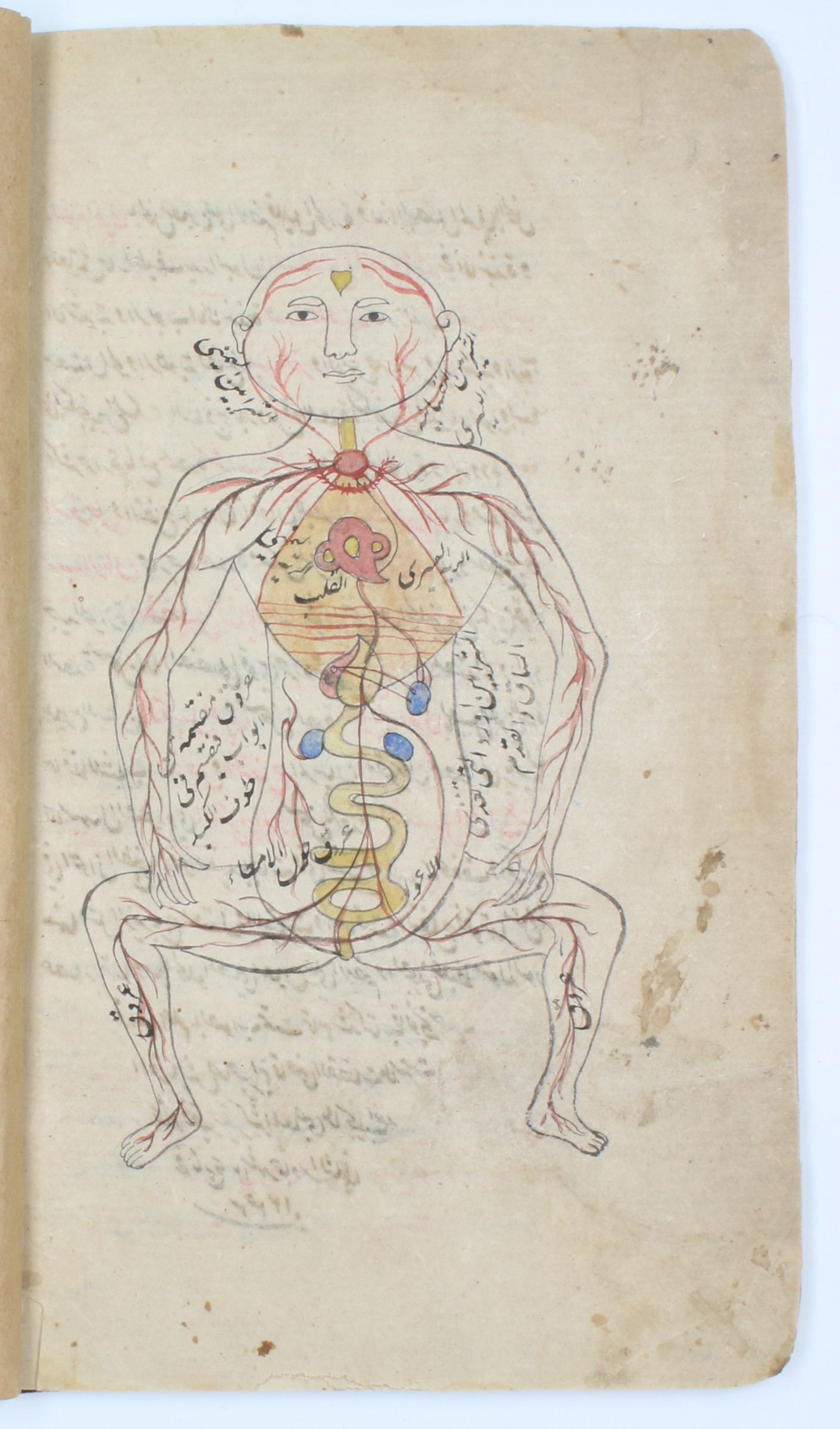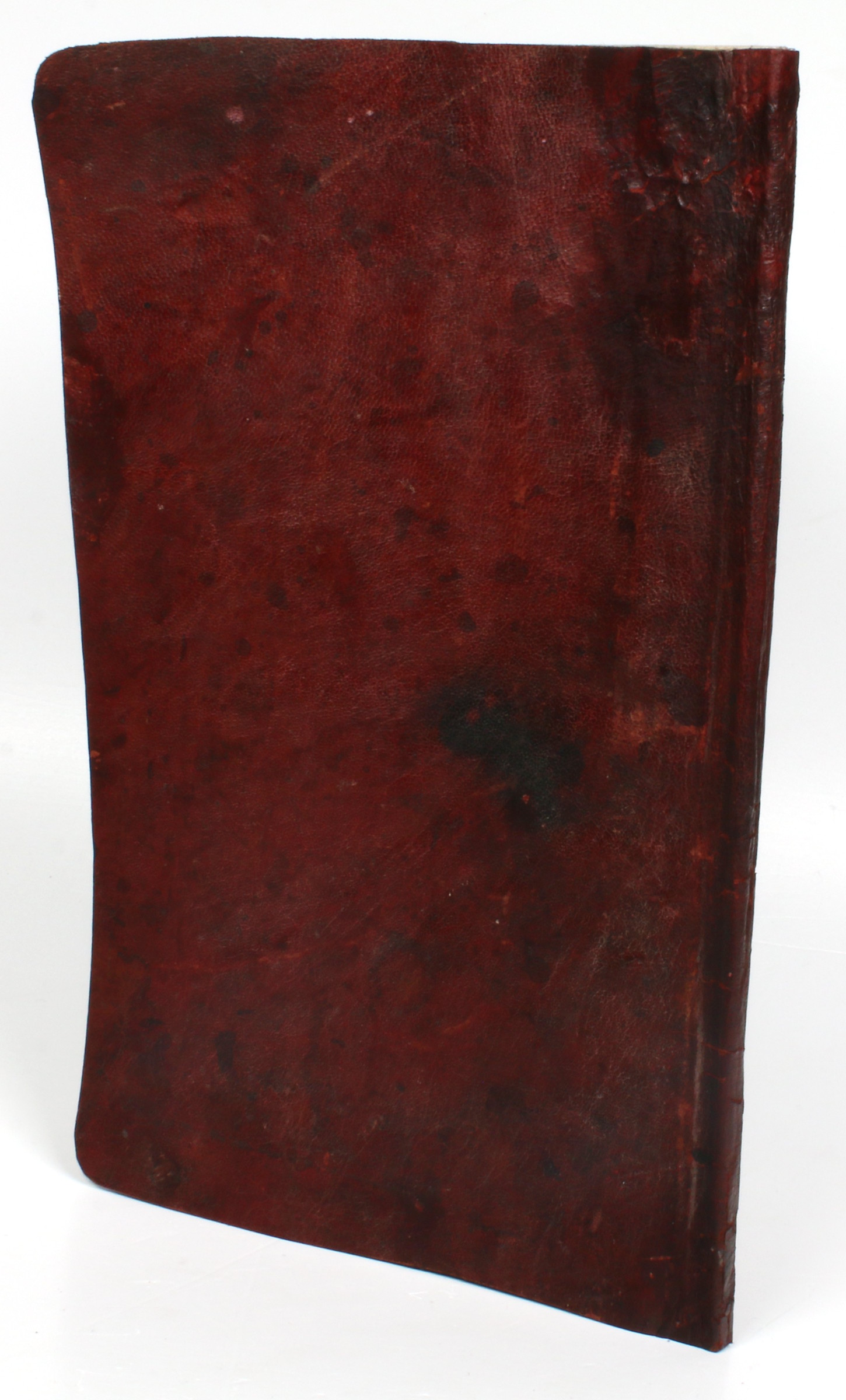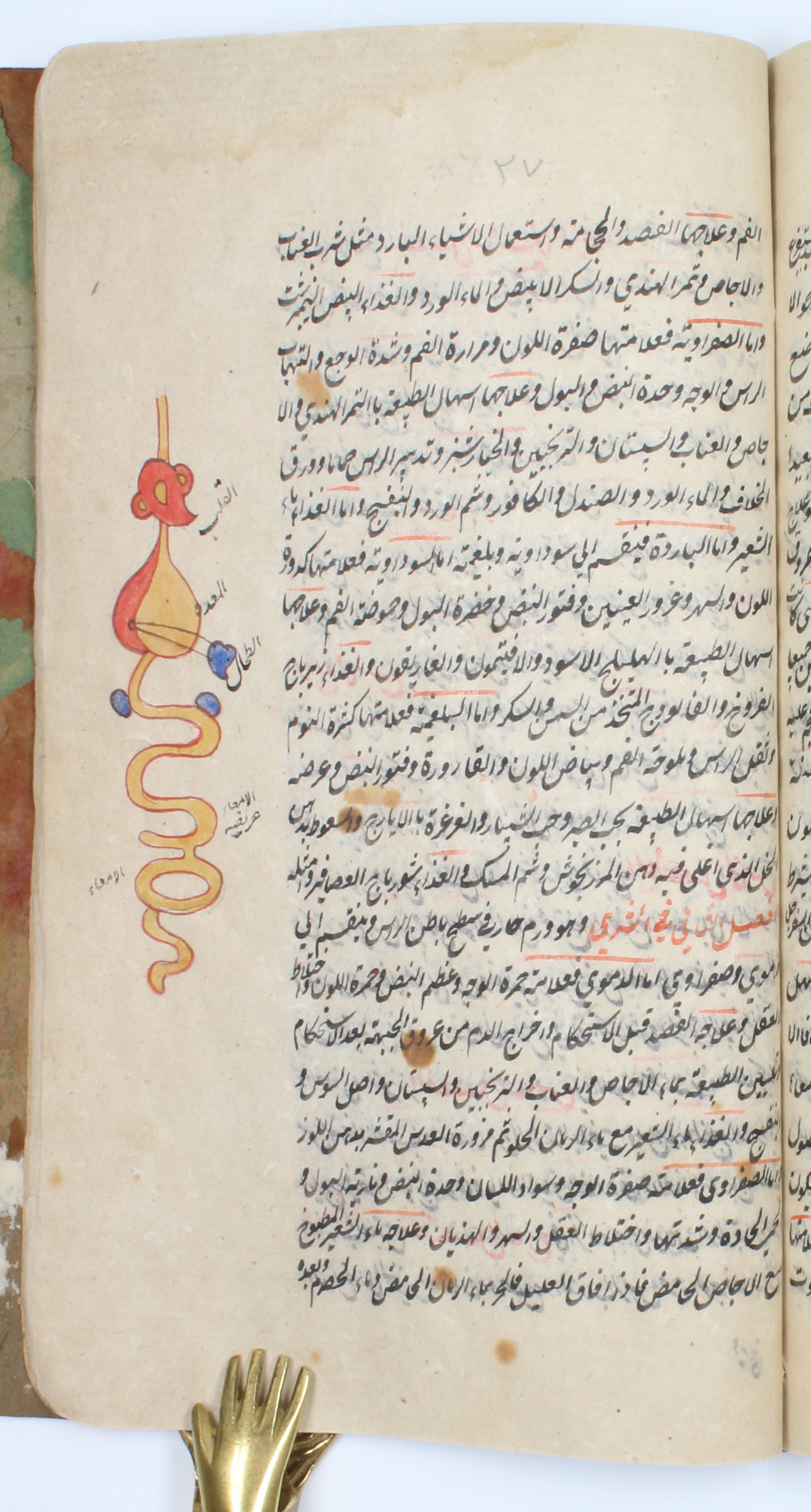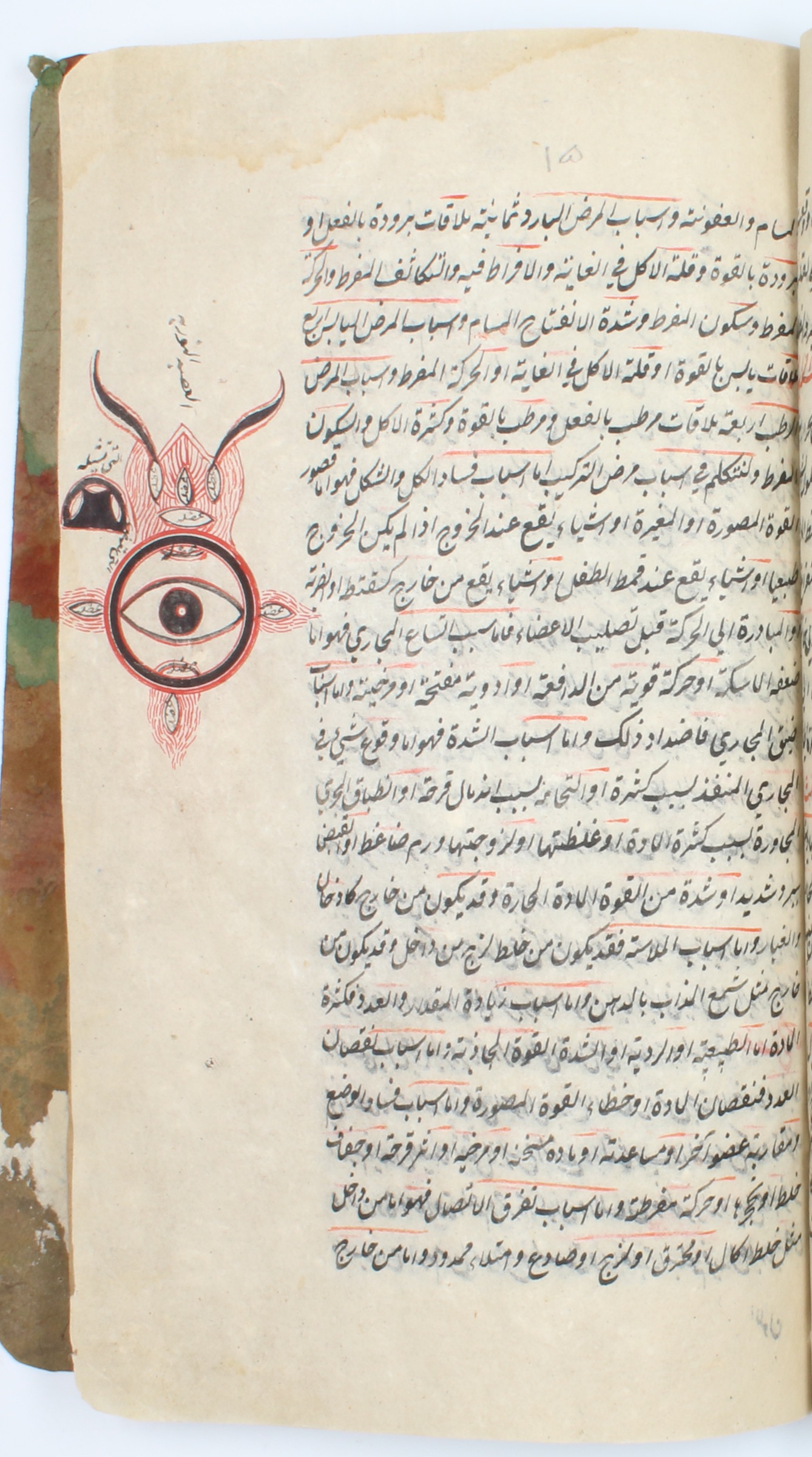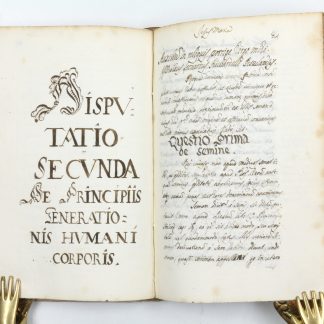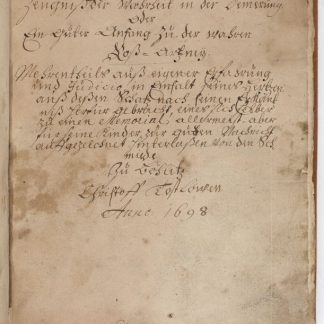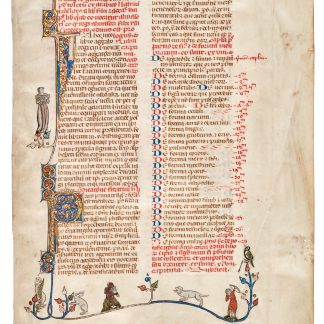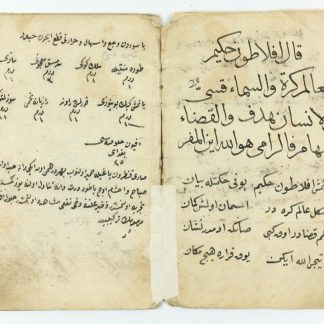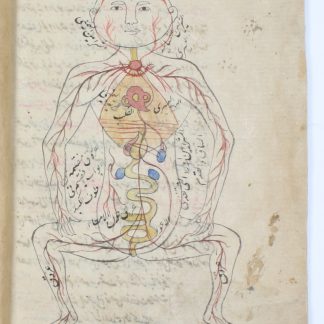Illustrated manuscript of the Qanunceh, or "small canon": a summary of Ibn Sina's famous Canon of Medicine
Al-Qanunchah fi al-Tibb [Small Canon].
8vo (ca. 150 x 240 mm). 23 ff. Arabic manuscript on fine paper, black and red nasta'liq script in 21 lines per page. With 4 hand-coloured illustrations. Contemporary limp auburn calf.
€ 25.000,00
Manuscript containing the translation of Ibn Sina's "Qanunsah" ("Small Canon"), originally written in Persian: a brief medical compendium compiled by the Khwarazmian polymath Mahmud ibn Muhammad ibn Umar al-Jaghmini based on Ibn Sina's famous "Qanun". This abridged manual of medicine is arranged in ten parts ("maqalat", or "discourses"), each containing several chapters. The first maqala serves as a general introduction, dealing with the basic concepts of 14th century medical science and illustrating the various physical qualities (al-arkan) and body constitutions (al-amzigat), then focusing on the four Galenic humours (al-ahlat) - blood, phlegm, yellow and black bile - before discussing the parts of the body, the senses or faculties (al-quwá), and the preservation of one's natural temper (al-umur at-tabi iya). Further discourses treat anatomy, the various "conditions of the human body" ("ahwal badan al-insan"), the pulse, the "tafsira", or urine bottle given to the physician by the patient for inspection, the various aspects of the "wise management of diseases", "head diseases" and "diseases affecting the other body parts", chronic diseases of the various organs, evident defects (or "infirmities") in the external appearance of the body, fevers, and ultimately the importance of food and drink as remedies. Several diagrams show the human anatomy, including marginal illustrations of the the digestive system and of the human eye with its nerves and muscles, a full page annotated cross-section of the human body, and even the sketch of a horse. Some brownstaining near the beginning. The colophon, dated 12 Jumada al-Thani 1243 AH, states that this manuscript was copied by Mulla Najib Allah.
Provenance: private London collection; formerly acquired on the UK and international art market 1970s-2020.

